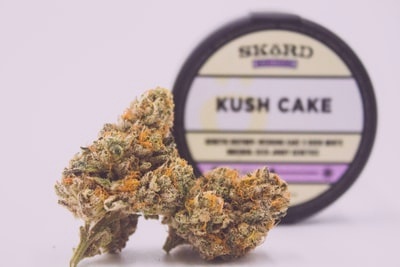By Liebe Griebenauw and Peter McCusker
FOUR firms have been sanctioned in the latest crackdown by the United States Food and Drug Administration on businesses making medical claims for their CBD products.
One of these, Cannafyl of Arizona, was advertising their products as being ‘intended to mitigate, prevent, treat, diagnose, or cure COVID-19’.
This is not the first, and will it be the last time the FDA takes such action – in 2019 and 2020 it sent over 40 similar warning letters and companies now face fines of up to $85,000.
Europe Fails
Here in Europe the same restrictions apply to CBD marketing but both the European Union and the UK have failed to develop robust monitoring and enforcement systems.
The EU does have a notification system for the health risks associated with food supplements – the RASFF.
But with misleading product claims it has passed this ball back to the member states. In 2005 it created a list with names, phone numbers and addresses of the relevant monitoring authorities.
Additionally, the European Food Safety Authority (EFSA) created an advisory forum where members signed a ‘declaration of commitment’, the list can be found on its website. This list consists of food safety agencies registered in member states.
EFSA told BusinessCann: “The European Commission authorises different health claims provided they are based on scientific evidence and can be easily understood by consumers and EFSA is responsible for evaluating the scientific evidence supporting health claims.”
However, it went on to say that on CBD products are ‘out of EFSA’s remit’, and that EU countries are responsible for monitoring this individually.
Dutch Industry Initiative
In Holland, a regulatory agency the ‘Keuringsraad’ has been created by industry participants to monitor health claims on food and food supplements.
In one of its many articles regarding CBD they mention how it approaches companies who overstep the boundaries of medical claims.
It says such companies face fines and since 2018 four such CBD medical claims were investigated and all agreed to change the wording or removed the offending products from sale.
Holland may be an exception as there is little evidence of similar agencies elsewhere in the European Union.
The European Industrial Hemp Association (EIHA) recognising the lack of regulation in this area has established a protocol which all members must observe.
EIHA Managing Director Lorenza Romanese told BusinessCann: “We do not accept members that make medical claims or sell hemp as marijuana.”
UK Food Supplement Talks
In the United Kingdom the Cannabis Trades Association successfully petitioned the Medicines and Health Products Regulatory Agency (MHRA) to have CBD treated as a food supplement in 2017.
It agreed that its members needed to voluntarily remove any health claims from their products, or remove their products from the market.
Peter Reynolds, who attended that meeting and later founded trade group CannaPro, said: “We agreed that if CBD was being used as a medicine it needed a marketing authorisation.
“However, we argued that it is not a medicine, it is a food supplement and therefore we would work to stop medicinal claims being made.”
Regulators Do Nothing
Writing for BusinessCann recently he said: “There are disreputable businesses selling products that are not what they claim. They don’t have the amount of CBD in them that is advertised and they are certainly not medicines which can treat cancer, diabetes, depression and serious illnesses.”
“These problems are already covered by existing laws. The problem is they are simply not being enforced. The regulators who should be acting against these rogue companies include the MHRA, the Advertising Standards Authority (ASA) and Trading Standards.
He went on to say that when complaints have been made the agencies ‘have done nothing about it and the illegal advertising continues to this day’
BusinessCann approached the MHRA and it said it has issued guidance for the sale and market of medicinal products including a CBD category – The Human Medicines Regulations 2012 (S.I. 2012/1916), however, there is no mention of an active regulatory party.
The MHRA went on to say that it ‘doesn’t regulate health claims’, adding this would be something ‘for the Department of Health and Social Care (DHSC) and local Trading Standards’. The DHSC has yet to respond to the MHRA’s claim.
Easylife Group Sanctioned
The ASA told BusinessCann it had sanctioned one company in 2020 – the Easylife Group Ltd t/a Positive Health – following an advert in The Times which said:
The NEW CBD Miracle Patch Reduces: Chronic Pain Anxiety Depression Insomnia Diabetes Poor Memory Heart Problems High Blood Sugar And Much More …”.
In response Easylife said it ‘would not run the insert again saying it was never their intention to mislead consumers’.
Whilst the UK National Trading Standards said it was a matter for the individual trading standards teams in the 350-or-so local authority areas.
CannaPro Withdraws Membership
In the United states the FDA has no truck with sanctioning businesses who are ‘illegally’ marketing their CBD products.
However, the possibility of any of the responsible authorities in Europe and the UK taking concerted action looks highly unlikely and, as things stand, it is left to the trade groups to police their own members.
CannaPro did just this last week after one of its members– now no longer a member – touted CBD as being effective for pain.
Reflecting on the existing regulatory paradox Mr Reynolds added: “We all know why people use CBD, and this whole business is built around that, but you just cannot say so when promoting your products.”
The post Why Can CBD Be A ‘Cure-For-All’ In Europe – But Not The United States? appeared first on Cannabis Business Executive – Cannabis and Marijuana industry news.






